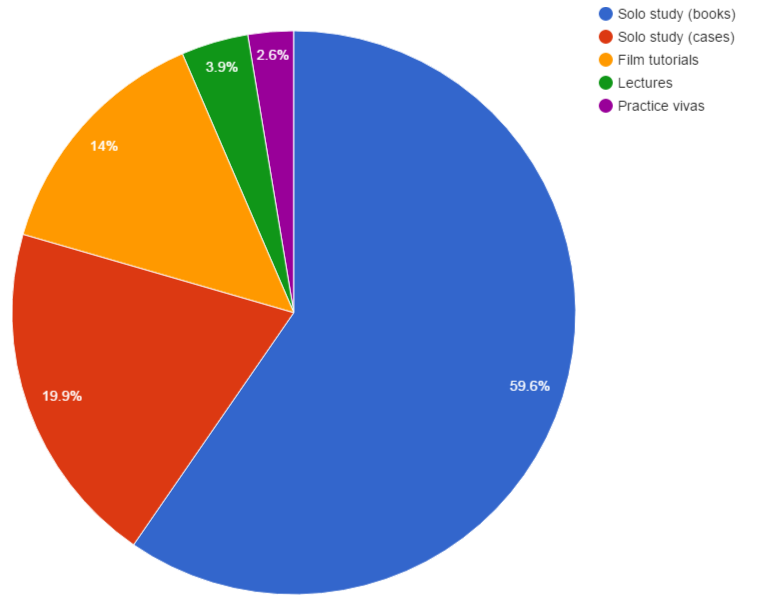"How much do I need to study to pass?" is a question asked by almost every radiology trainee as they approach their fellowship/board examinations. I recently passed the RANZCR part 2 examination series and thought I would share my experience.
Techniques
Procrastination and distraction are the trainee's nemesis, but there are two techniques I used that are useful to maximize efficiency:
-
pomodoro technique
- 25 minute study blocks (same length as the viva examination) with 5-10 minute breaks in between
- procrastinate and complete non study tasks in breaks
- set a minimum number per day, easy to fit into the day (e.g. one before work, one at lunch (or work), and two after work = 100 minutes of study per day)
- active recall with spaced repetition: essentially reading and then self-testing knowledge at intervals
These two techniques were the key to keeping on track, keeping study guilt under control, and feeling like I could get on with life. Active recall is difficult, it requires much more effort than passive study (such as note taking) but the results are much much better.
Further viva techniques are discussed in Frank's blog "How to prepare for radiology oral exams: essential techniques".
Results
I kept track of of how many minutes I studied, tutorials and lectures attended, and practice viva exams performed for the 258 days (approximately 8.5 months) in the lead up to my fellowship exams (although I "started" studying 8 months prior to this, just not effectively):
- 430 hours solo study (not including tutorials, lectures, courses, etc)
- average 166 minutes/day leading up to the written exams
- average 74 minutes/day in the 10 weeks between the written and viva exams
- 25 lectures
- 114 film tutorials
- 34 practice viva examinations (individual and in series)

I hope this gives some outline to what is needed. If you've done your fellowship/board examinations add your estimate or tracked time in the comments below, it'd be interesting to know!

Dr Henry Knipe is a radiology registrar at The Royal Melbourne Hospital in Australia, and is a managing editor at Radiopaedia.org. Twitter: @DrHenryK.
NB: Opinions expressed are those of the author alone, and are not those of his employer nor of Radiopaedia.org.







 Unable to process the form. Check for errors and try again.
Unable to process the form. Check for errors and try again.